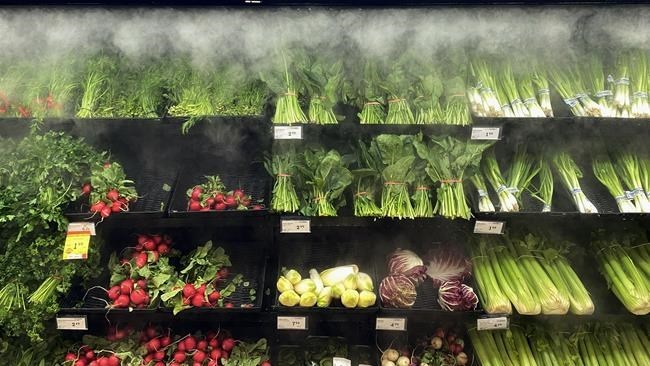Accusations of profiteering in the Canadian grocery industry are unfounded and unsubstantiated, witnesses told a House of Commons committee studying food prices on Tuesday.
"We must put the profiteering debate to rest," Dalhousie University food researcher Sylvain Charlebois told MPs.
Charlebois said while profits at the so-called Big Three grocers — Loblaw, Empire and Metro — have risen in nominal dollars, their gross margins have remained constant for more than five years.
Karl Littler, senior vice-president of public affairs for the Retail Council of Canada, told MPs that grocers have very little to do with food inflation, and that "the overwhelming portion of the runoff in food prices occurs earlier in the supply chain at the producer and processor level."
This is not to blame producers or processors, he added, but rather to point out that globally rising costs of feed, fuel and fertilizer as well as higher interest rates and labour costs are being passed along the supply chain.
"We face recurring attempts to portray grocers as cartoon villains," said Littler.
The government should be more concerned with price co-ordination within the industry, said Charlebois, noting a recent example where Loblaw reduced its discounts on last-day sale items, citing alignment with its competitors. Loblaw later cancelled the discount change after public backlash.
He also mentioned the long-standing practice of an industry-wide blackout period on supplier price increases, and said the Competition Bureau should take a more proactive role in monitoring for potentially anti-competitive behaviour.
Metro CEO Eric La Flèche said last week that retail prices on some grocery items would start rising in February after the blackout period came to an end.
The industry has been under intense scrutiny from the committee and the federal ministers of industry and food as grocery prices outpace inflation.
Headline inflation accelerated to 3.4 per cent in December, while grocery prices rose 4.7 per cent that month.
Executives from the biggest grocers, including Walmart Canada and Costco, have appeared before the committee to answer questions about their profits during inflation.
The executives pushed back on suggestions that they were responsible for high food prices.
"The truth is we are at the end of a very long food supply chain that has economic inputs at every step and stage," said Michael Medline, the president and CEO of Empire, in March.
The grocers were also summoned by government in the fall to present their plans to stabilize food prices.
Industry Minister François-Philippe Champagne has expressed disappointment in the grocers, saying they have not been as transparent as he had hoped with their plans.
Champagne wrote a letter to Competition Bureau Commissioner Matthew Boswell last week suggesting the bureau do a follow-up study on the grocery sector using its new subpoena powers to get financial information.
However, the federal government has not moved forward with its threat to tax the grocers if they didn't co-operate. In a news conference on Tuesday, Finance Minister Chrystia Freeland said the government is still ready to use all the tools at its disposal but didn't elaborate on whether a tax is being considered.
Charlebois and Littler were among several expert witnesses who spoke to the committee Tuesday about grocery prices, the code of conduct and the carbon tax.
Charlebois told the committee it should prioritize the grocery code of conduct, which is nearly complete but at a standstill with Loblaw and Walmart saying they're not ready to sign on.
The two grocers previously told the committee they are concerned the code as written will raise food prices for Canadians.
Proponents of the code say it will create a fairer playing field for suppliers and smaller grocers in the Canadian food retail industry.
Keith Currie, president of the Canadian Federation of Agriculture, told the committee that the code is about integrity and fairness.
"We all know that businesses up and down the supply chain need to be profitable in order to continue to exist," he said.
The code is supposed to be voluntary and industry-led, but without the biggest grocers on board, it won't be successful, said Charlebois.
The CEO of Metro previously told the committee the same thing, indicating that the grocer is willing to sign the code but that participation from all grocers and suppliers is essential to its success.
Over time, lawmakers will face mounting pressure to use legislation to enact the code, said committee chair Kody Blois, even though that would be more complicated as it would also involve the provinces.
But Diane Brisebois, president and CEO of the Retail Council, told MPs that she's still optimistic the code could be launched this year, adding that the steering committee is currently in discussion with various companies to try and reach an agreement.
-- With files from Nojoud Al Mallees
This report by The Canadian Press was first published Feb. 6, 2024.
Companies in this story: (TSX:L, TSX:MRU, TSX:EMP.A)
Rosa Saba, The Canadian Press




